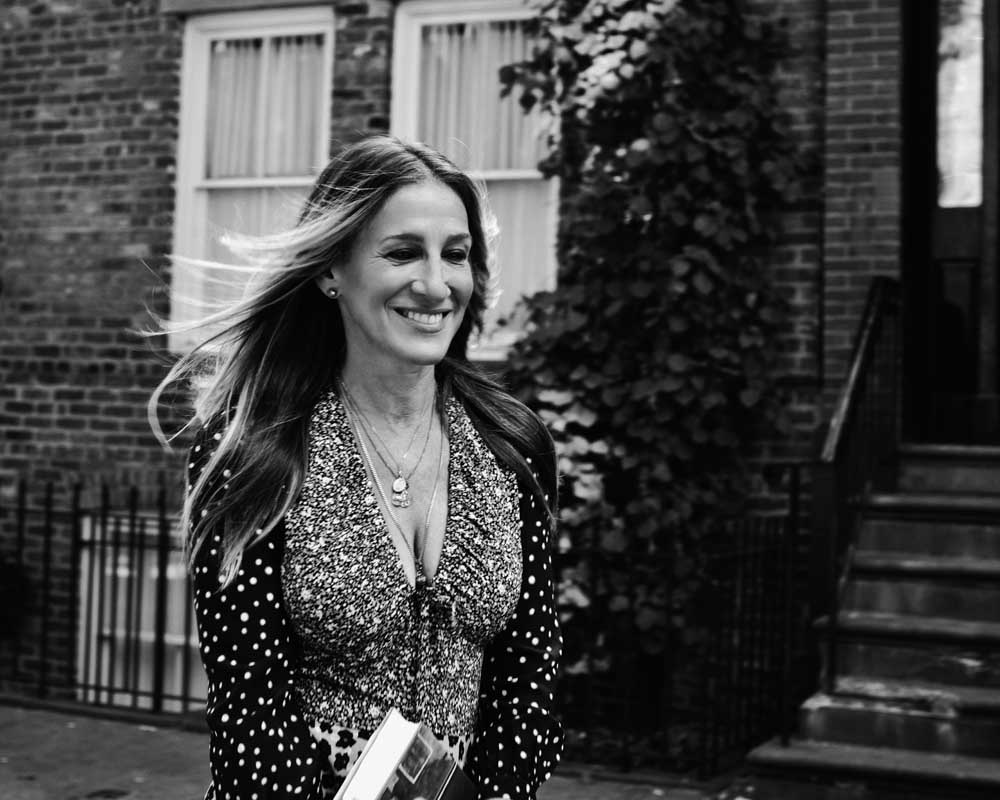‘Divorce’ is almost like Carrie in crisis
Published 12:00 am Saturday, October 8, 2016

- Ryan Pfluger / The New York TimesSarah Jessica Parker is returning to HBO with a show whose very title — “Divorce” — suggests the bitter culmination of all that sex in the city.
In 1998, playing the relationship columnist Carrie Bradshaw in “Sex and the City,” Sarah Jessica Parker helped usher in HBO’s golden age and define a Manhattan gilded age. So it’s unavoidable to wonder if her new HBO series, “Divorce,” is “Sex and the City” 18 years later.
It is not. It’s more like a comedy about the kind of people who once watched “Sex and the City,” 18 years later: suburbanites, pushing 50, for whom the sex (at least with their spouses) is nothing to wax literary about, and the city is a long train ride away.
“Divorce” is not as dewy-eyed as its forebear, not as fresh in its material, and in its first outings, not as consistently funny. But it can be a caustic pleasure, a chaser, heavy on the bitters, to Carrie’s fruity cosmo.
Here, Parker is Frances, who, in a gender twist on the stereotypical scenario, is the one having the midlife crisis. She has a pricey house in Westchester County, New York, two teenage kids and an office job for which she’s back-burnered a dream of opening an art gallery. (In this ambition, she is more a Charlotte than a Carrie.) She also has a hunky college professor lover, Julian (Jemaine Clement, “Flight of the Conchords”).
Frances’ husband, Robert (Thomas Haden Church), seems incapable of crisis, to a fault. He’s bluff and steady, predictable down to the timing of his bowel movements. His bushy, 19th-century-style mustache makes him look mothballed and out of his time, like a man doing a Civil War re-enactment of himself.
Robert is no Mr. Big. He is, maybe, Medium. “Divorce” is grounded in harsh, compromised reality. In the opening shot, as Frances soberly assesses herself in the mirror — neck, chest, corners of the eyes — Parker conveys the sense of a woman who Marie Kondoed her rose-colored glasses years ago. Julian gives her, besides orgasms, the chance to be at the beginning of something again.
The affair is not — at first — what drives Frances and Robert to splitsville. Rather, it’s the 50th-birthday party for her friend Diane (Molly Shannon), who gets sloppy drunk, rummages through a drawer for a gun and fires a clumsy shot at her husband, which nearly hits Robert.
Instead of bringing Frances and Robert together, the scare pushes them further into themselves. He contemplates his mortality; she decides she wants out: “I want to save my life while I still care about it.”
“Divorce” was created by Sharon Horgan, writer and star of “Catastrophe,” an unromanticized romantic comedy about marriage as a messy struggle. This comedy throws that rattly engine into reverse. The process of cutting entanglements, as Frances and Robert go from confrontation to mediation to litigation, is both sad and oddly invigorating.
Horgan keeps the show’s sympathies complicated. Frances has fallen in love with falling out of love, and even Julian sees her decision as rash and self-centered. Robert is the cheated-on spouse, but he’s no prize himself. When he learns about the affair, he glories in having the moral high ground: “You’re Jesse James,” he blusters, “and I get to be Sandra Bullock!” Neither is above using their friends and kids as leverage.
Church gets the bigger comic moments, and he delightfully plays Robert as a blunderbuss whose explosions register both his pain at losing Frances and the rigidity that lost her in the first place.
Parker plays the more complex role, with more mixed results. She made audiences love Carrie for years, and her inclination is to win us over to Frances. That’s important: You need to see that Frances believes that she’s the hero of a drama, not an antihero in a farce. But sometimes the role misses someone — like Horgan herself — who could own the character’s faults and the series’ acid tone.
Some of the problem lies in the scripts, which swing unsteadily between lacerating the couple and empathizing with them. Ideally, “Divorce” wants to be a vicious relationship comedy that also takes its core sadness seriously. In this sense, it aims to be less like “Sex and the City” than like HBO’s naturalistic “Girls” (whose producer Paul Simms serves as a showrunner).
The difference, of course, is measured in years. “Divorce” feels middle-aged in its bones, from the themes to the wintry setting to the ’70s-rock soundtrack (Supertramp, Todd Rundgren, Climax Blues Band). It’s not going to reinvent the breakup comedy or the HBO comedy. Its goal is more modest and midlife-appropriate: to tell one more story of two people trying to reinvent themselves.






